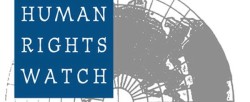France launches campaign to end selfies on rail tracks as incidents rise
- 2021-05-07 21:51:26


 Pierre Rayer: Art, Science, and Happiness: The Universal Mission of Transmission to Future Generations through Patronage at the Louvre Abu Dhabi
Pierre Rayer: Art, Science, and Happiness: The Universal Mission of Transmission to Future Generations through Patronage at the Louvre Abu Dhabi Ahly crowned Super champions after dramatic extra-time win over Modern Future FC
Ahly crowned Super champions after dramatic extra-time win over Modern Future FC Yemeni Honey..A Development Wealth Threatened By Conflict And Climate Change
Yemeni Honey..A Development Wealth Threatened By Conflict And Climate Change Central African rebels launch attacks near capital
Central African rebels launch attacks near capital California wildfires: Millions warned of possible power cut
California wildfires: Millions warned of possible power cut Yemeni Alsudi elected to head West Asian Darts Federation
Yemeni Alsudi elected to head West Asian Darts Federation Yemen: Houthis target commercial ship in Red Sea
Yemen: Houthis target commercial ship in Red Sea Digital Dubai highlights latest trends in digital transformation and AI at GITEX Global 2024
Digital Dubai highlights latest trends in digital transformation and AI at GITEX Global 2024 HRW: Yemen Houthis Disappear Dozens of UN, Civil Society Staff
HRW: Yemen Houthis Disappear Dozens of UN, Civil Society Staff Yemen : No one is safe in Sana'a, international organizations must leave to protect their staff, ِAlawadhi says
Yemen : No one is safe in Sana'a, international organizations must leave to protect their staff, ِAlawadhi says
